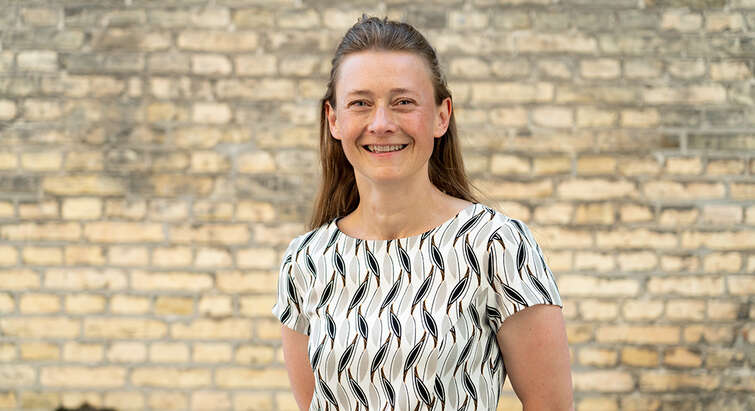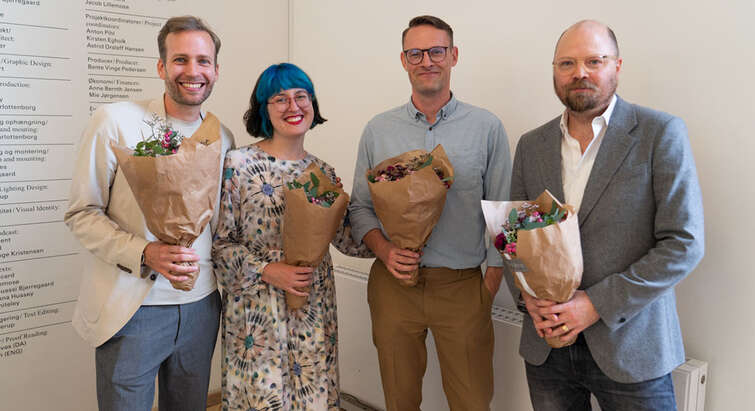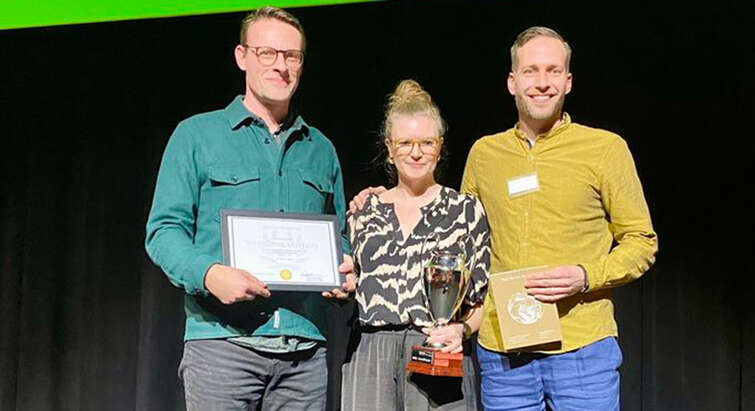
Cardiometabolic Research in Society and Culture
The overall objective of the program is to situate metabolic science in cultural, historical, and philosophical context through humanities and science communication research, which in turn informs innovative public engagement practices. The Program works across the Center and Medical Museion, where the team produces research-based exhibitions, events, and online communication, alongside publications.
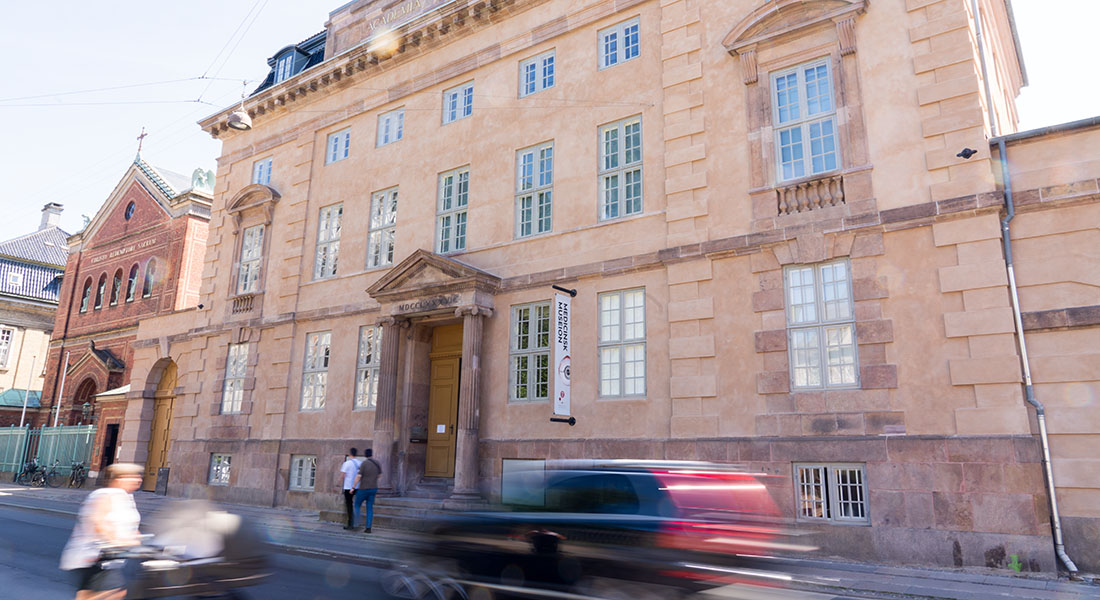
This program is founded on the conviction that metabolic health and disease can be best understood by situating contemporary science with respect to its long history, its cultural representations, and the everyday experiences it evokes. Current research foci include metabolism in art, the implications of microbiome research for understandings of health, how museums should collect metabolic research, how diagnosis moves between laboratory and clinic, and how metabolism can help the humanities think differently. We are also increasingly interested in exploring how research culture and environment can help innovative multidisciplinary work to flourish. The program also produces public engagement in dialogue with its research, each informing the other. Having research-based public engagement embedded within the Center offers a unique opportunity to contribute to public discussions around metabolism. The Program also has a developing interest in facilitating conversations between stakeholders from across the Center, university, hospitals, and far beyond.
Metabolism is fundamental to life, to being a human organism in constant exchange with its environment. Metabolism is also the focus of several of the major public health concerns of the 21st century; from rising diagnoses of obesity and diabetes to the impact of consuming industrial diets on the body.
In the past few years, the social sciences and humanities have started to pay greater attention to metabolism, both as a key area of biomedical science to understand, and as a metaphor for contemporary attention to the body as a complex of interacting systems in dialogue with each other and the environment. Under the wider umbrella of medical humanities, this research area is developing a sustained focus on “metabolic humanities.”
Current research projects include:
- Studying metabolism across art and science through three thematically linked areas: Food, fat and feces
- To elucidate how microbiome research affects our understandings of human health and wellbeing, and the communicative challenges that inhabit exploration of these new perspectives (grounded in Velux Foundation-funded project Microbes on the Mind).
- To identify the key tools and ideas of metabolic research today, by integrating the insights of the Center scientists with perspectives from the history and philosophy of science.
- To take the science of circadian rhythms as a jumping off point for a wider investigation of time, timing and rhythmicity in health, medicine and scientific practice
- To investigate the construction and movement of diagnostic categories between clinic and laboratory, grounded in the case of diabetes research
The research area is coordinated by Associate Professor Adam Bencard, who has expertise in the philosophy of metabolism and the microbiome and museology, as well as an extensive curatorial practice. The research group developing these projects also includes Associate Professors Karin Tybjerg and Louise Whiteley, Assistant Professor Martin Grünfeld, Postdoc Kristin Hussey and PhD fellows Tine Friis, Joana Formosinho and Guston Sondin-Kung.
Museums hold collections of historical objects for three main purposes: to preserve the heritage of particular fields of human knowledge and activity; to use those objects to communicate about those fields; and to better understand those fields by researching the use, properties, and theories of their objects.
Yet in the past few decades, museums of science and technology have struggled to know what, how, and why to collect from contemporary laboratories and clinics. The objects are not obviously “good for exhibitions,” are often either cheap and disposable or extremely valuable, and are rarely donated when they become obsolete. As the nature of science changes to become more international, interdisciplinary, and collaborative, it is also hard to use the theoretical frameworks of the past to organize “collections.”
Current projects include:
- Delivering a novel picture of the material heritage of metabolic research, connecting museum, laboratory, and clinical objects to the materiality of everyday life with metabolic conditions.
- In doing so, delivering new theoretical and practical knowledge about how “collections” in the area of biomedical research can be conceptualized and built.
- Use the concept of metabolism itself to help us rethink museums and collections as living things in a constant state of change.
- Contributing to preserving the material heritage of Center research for the exhibitions of tomorrow, making new acquisitions in close collaboration with Center scientists.
The research area is coordinated by Curator Niels Christian Bech Vilstrup, who has extensive expertise in the curatorial and collection aspects of the program’s work. Assistant Professor Martin Grünfeld has also been instrumental in leading the development of research in this area.
This research area focuses on developing the communication activities of the program, situating metabolic science in a cultural, historical, and philosophical context. A key foundation for our communication research is a focus on the materiality of laboratory, clinic, and everyday life, and how objects from these different domains can be used in museums to prompt curiosity and conversation. We are also fascinated by the potentials of creative writing and exhibition text, and are developing methods for studying visitor experience of hybrid art-science exhibitions.
The museum can thus also be seen as a kind of “laboratory,” which experiments with methods of communication that are effective for engaging public audiences and other stakeholders with the processes, objects, and materialities of scientific practice, to convey the uncertainties and aesthetic dimensions of science and relay the challenges and rewards of the search for knowledge.
Current projects include:
- To address why and how artists and scientists should be included as “co-curators” in developing exhibitions on biomedical science.
- To explore how the literatures on interdisciplinarity and science communication can inform each other, and support practical strategies to facilitate communication in interdisciplinary scientific environments.
- To develop curatorial theory and practice for combining art, science, and history, via major exhibition project The World is in You, and assess how visitors respond.
- To determine how exhibitions can best be used to open up laboratory science to visitors and to students, connecting to personal and aesthetic experience.
- To develop a new space and program for facilitating conversations between stakeholders from across the university, hospitals, and far beyond, and study its outcomes.
The research area is coordinated by Associate Professor Louise Whiteley (also deputy director of the program), who has research expertise in science communication studies and the relationship between mind and body, as well as having planned and executed diverse public engagement activities and exhibitions. The dialogue between this research strand and public engagement activities involves staff from across the entire museum, including head of programming Bente Vinge Pedersen and her team.
Project Leaders and Coordinators
Cardiometabolic Research in Society and Culture is led by Program Coordinator and Museum Director Professor Ken Arnold. The program has three area coordinators (Adam Bencard, Louise Whiteley, and Niels Vilstrup) who work alongside other academic and curatorial staff.
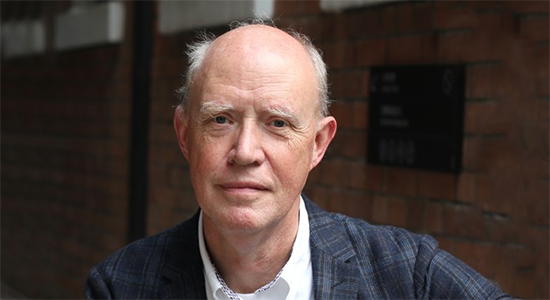
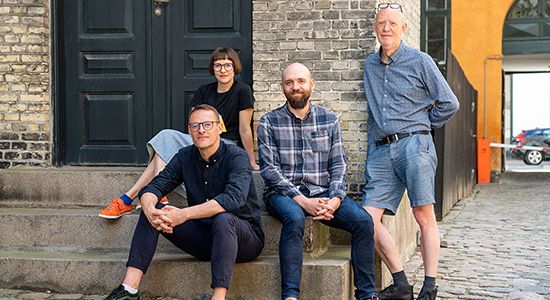
Staff list
| Name | Title | Phone | |
|---|---|---|---|
| Aamot Helm, Aslak | Postdoc | +4535327426 | |
| Arnold, Ken | Professor | +4535330692 | |
| Bech, Christoffer Gertz | Museum attendant | +4593509449 | |
| Bencard, Adam | Associate Professor | +4535320875 | |
| Bjerregaard, Malthe Kouassi | Curator | +4535320887 | |
| Friis, Tine | External | +4593516034 | |
| Glerup, Cecilie | Research Coordinator | +4593509913 | |
| Green, Ane Signe | Marketing Manager | +4593509125 | |
| Grytter, Simone Cecilie | Visiting PhD Student | +4535326084 | |
| Hastrup, Vibeke | Administrative Officer | +4593509449 | |
| Jensen, Anne Bernth | Curator | +4535331287 | |
| Jensen, Maria Thode | Attendant | ||
| Meyer, Ion | Head of Collections, Curator | +4535323804 | |
| Riel, Charlotte | Administrative Officer | +4535323800 | |
| Schjøtt-Wieth, Amalie Suurballe | Conservation Technician | +4593509529 | |
| Stampe, Anne-Sofie | Academic Staff | +4535330241 | |
| Stromark, Josefine Rahbek | External Consultant | +4535333158 | |
| Tybjerg, Karin | Associate Professor | +4535323803 | |
| Vilstrup, Niels | Curator | +4535323867 | |
| Whiteley, Louise | Associate Professor | +4521126712 | |
| Yvonnet, Sarah | Visiting PhD Student | +4535332988 |

